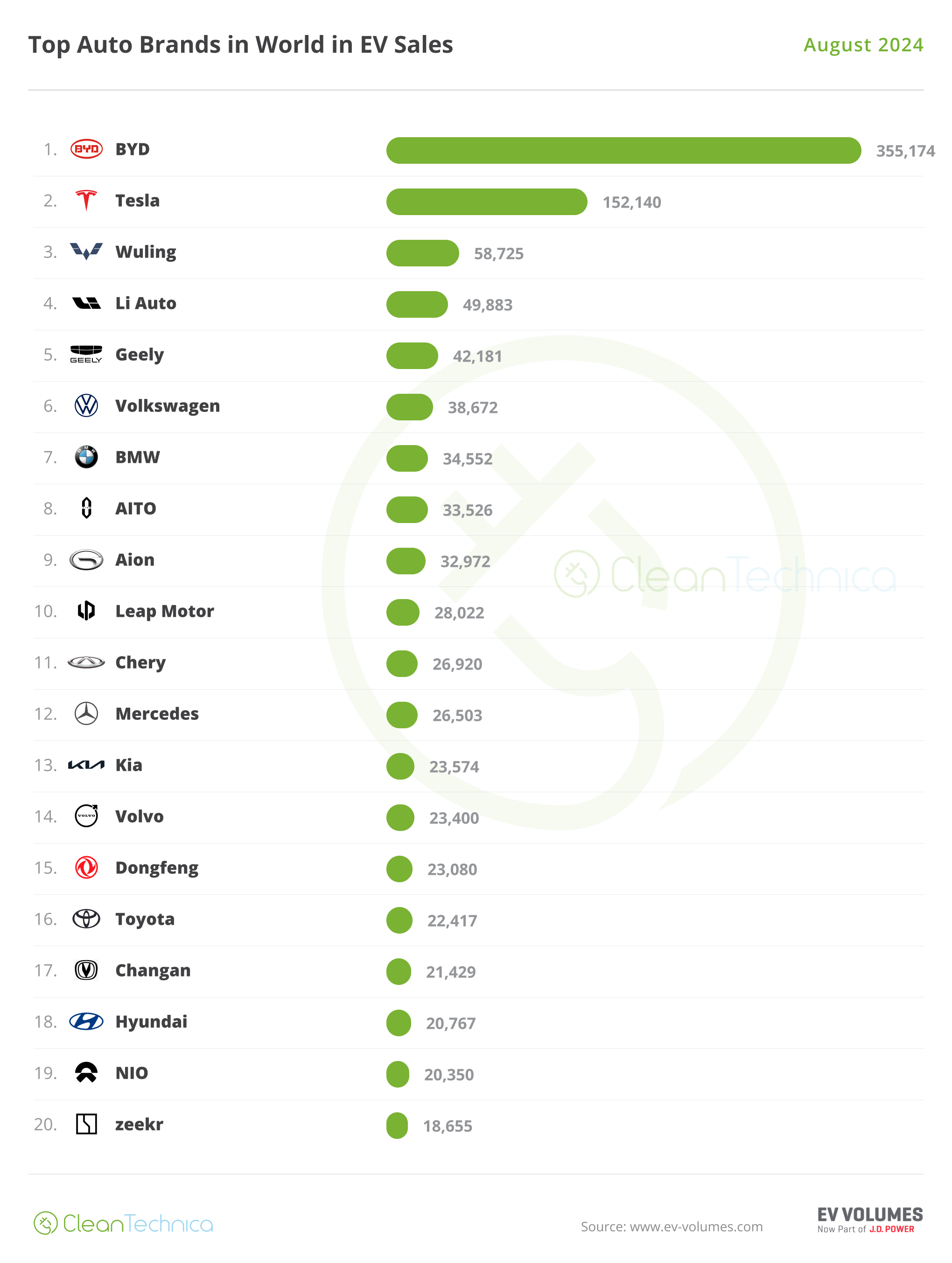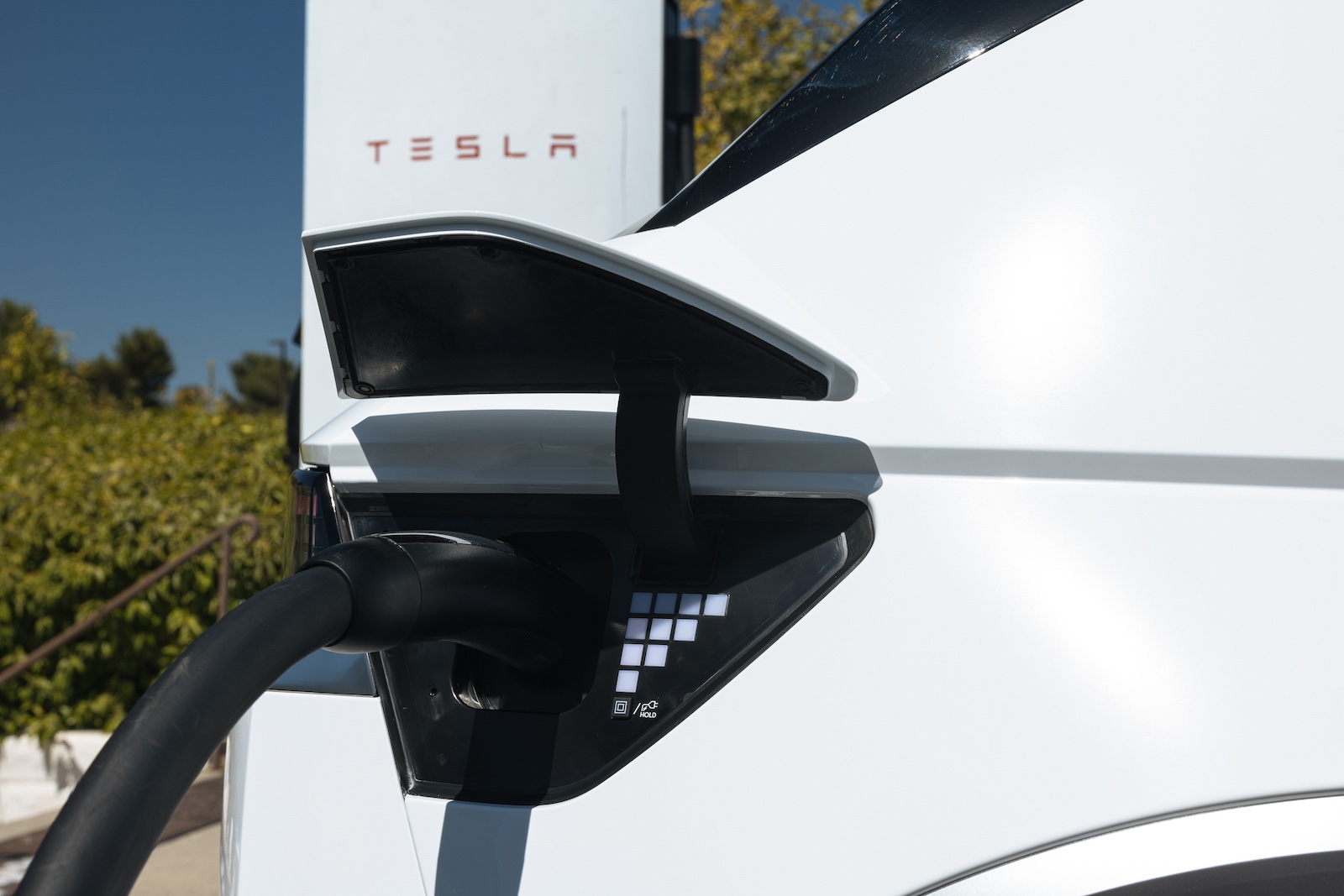Support CleanTechnica’s work through a Substack subscription or on Stripe.
The US EV battery recycler Redwood Materials launched back in 2017 with an A-list pedigree in its pocket, as the brainchild of Tesla Motors co-founder J.B. Straubel. That was back when the EV market had nowhere to go but up, pouring millions of spent batteries into the Redwood supply chain. Now that the EV market in the US has collapsed, what will happen to Redwood? Well, follow the money…
Another $350 Million For EV Battery Recycling
EV sales in the US took a nosedive in October, following the end of the $7,500 federal tax credit on September 30. The crash was anticipated throughout the EV ecosystem ever since the beginning of July, when the Republican majority in Congress passed a new tax bill that brought the tax credit to its untimely end.
With that in mind, it may come as a surprise to see A-list investors pour another $350 million into an EV battery recycling startup. After all, if the EV market is shrinking, so are the opportunities to recycle EV batteries. Nevertheless, on October 29th, Redwood announced that its new Series E funding round closed with a haul overtopping $350 million.
The enthusiastic response of investors is somewhat less surprising in light of Redwood’s current business model, though. From an initial focus on dredging valuable materials from EV batteries, the company recently expanded its operations to cover the booming BESS (battery energy storage) market (see CleanTechnica’s Redwood archive here).
The California venture capital firm Eclipse, which spearheaded the Series E round, offered some insights in a blog post on October 23rd authored by newly minted Redwood Board Member Joe Faith.
“Initially focused on battery recycling and cathode active material (CAM) manufacturing — effectively creating one of the only domestic circular supply chains of critical minerals — Redwood’s recent expansion into energy storage has made it an integral part of the electricity ecosystem,” Faith noted.
“The best companies don’t limit themselves to a single product, strategy, or business model,” he emphasized.
The War On EVs, Wind Turbines, & Solar Panels Is Doomed To Fail
Beyond the Redwood investment, Faith’s post is notable for its pushback against US President Donald Trump’s prioritization of fossil energy.
“Along with expanding our domestic portfolio of energy resources (by building out alternatives such as nuclear and renewables) and improving infrastructure, the U.S. needs large scale energy storage in order to create a robust, reliable, and efficient domestic electric energy system,” Eclipse insists, taking note of the AI-fueled data center construction boom (emphasis added).
No kidding. In September, the US Solar Energy Industry Association toted up the capacity addition numbers for the first six months of this year. Combined, solar and energy storage accounted for an impressive 82% of new power generating capacity on the US grid. Solar alone accounted for 56%.
For all the love lavished on coal, oil, and natural gas at the White House (or what’s left of it), the simple fact is that solar is the quickest and most economical way to add new capacity, with wind chipping in to a lesser extent.
Follow The Money
As for J.B. Straubel, the Tesla co-founder was also the automaker’s Chief Technology Officer until leaving in 2019 to tend to Redwood full time. The long stay at Tesla provided Straubel with ample opportunities to assess the EV battery supply chain and develop a closed-loop solution.
“This is the mindset that created Redwood in the first place, and the company’s powerful combination of an innovation and execution-oriented culture that has allowed it to successfully create subsequent businesses that address the core needs of our modern industrial age,” Faith wrote, re-emphasizing Redwood’s expansion into the energy storage market.
Complementing Eclipse’s extensive portfolio of manufacturing ventures, another notable participant in the new Series E funding round is the venture capital arm of NVIDIA, NVentures. The NVIDIA link is interesting enough as-is, and it is particularly interesting given that NVIDIA is part of a broad data center coalition that has just launched a new, flexible data center model aimed at freeing up existing grid capacity.
Billed as “the world’s first power-flexible AI Factory,” the forthcoming 96-megawatt Aurora AI Factory in Virginia, will “serve as the implementation of a new reference design and certification standard for power-flexible AI infrastructure, enabling utilities to unlock existing grid capacity and rapidly connect new AI data centers,” as described by participating stakeholder Emerald AI.
I’ve reached out to Emerald for some insights into the energy storage angle. Generally speaking, energy storage systems are source-agnostic, so it wouldn’t be surprising to see nuclear or natural gas play a role in the project. For that matter, Redwood also makes some room for nuclear and natural gas power plants in its energy storage plans.
“Low-cost, large-scale battery energy storage has emerged as the most immediate and scalable solution to enable AI factory deployment and unlock stranded grid and generation capacity,” Redwood asserts, embracing an all-of-the-above perspective.
Still, the emphasis is also on wind and solar. “Beyond powering data centers, this storage capacity will benefit industrial electrification and help address the intermittency of domestic renewable generation,” the company adds.
What Happened To EV Battery Recycling?
With the energy storage market in hand and a fresh haul of $350 million in its pocket, Redwood has taken the pressure off its EV battery recycling business during a very challenging time for the vehicle electrification movement.
After years of positive EV sales trends, a thick pall of gloom and doom has settled over the US market. Auto industry analysts estimate that EV sales accounted for just 5.2% of the overall new-vehicle market in October, down from 12.9% in September.
Still, signs of a long term recovery are already brewing. The Jeff Bezos-backed EV startup Slate Auto, for example, is still moving forward with plans to launch a stripped-down, relatively affordable electric pickup truck by the end of next year.
In August, Ford and General Motors both announced future plans to manufacture more affordable EVs within the next few years. Hyundai also unveiled a new EV strategy for the US in September. While some of those plans are on hold now, they are unlikely to evaporate entirely. After all, automakers have been retooling, opening, and closing factories for more than 100 years, and they will continue to do so long after the current occupant of the White House leaves as scheduled on January 20, 2029 — peacefully this time, one hopes.
Image (cropped): The EV battery recycler Redwood Materials has expanded into the large scale energy storage market, just in time to catch the coattails of the AI boom (courtesy of Redwood via Eclipse).
Sign up for CleanTechnica’s Weekly Substack for Zach and Scott’s in-depth analyses and high level summaries, sign up for our daily newsletter, and follow us on Google News!
Have a tip for CleanTechnica? Want to advertise? Want to suggest a guest for our CleanTech Talk podcast? Contact us here.
Sign up for our daily newsletter for 15 new cleantech stories a day. Or sign up for our weekly one on top stories of the week if daily is too frequent.
CleanTechnica uses affiliate links. See our policy here.
CleanTechnica’s Comment Policy




